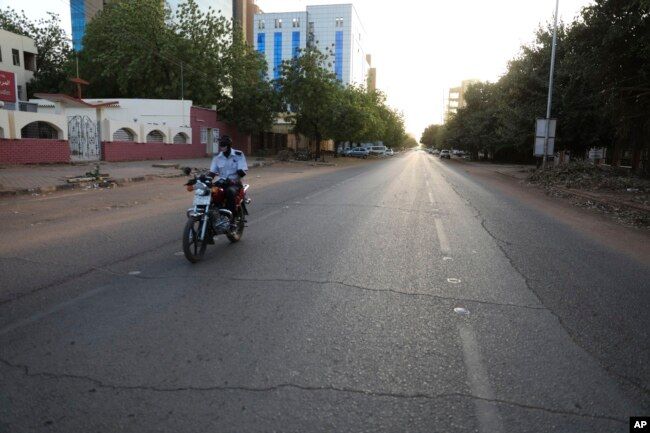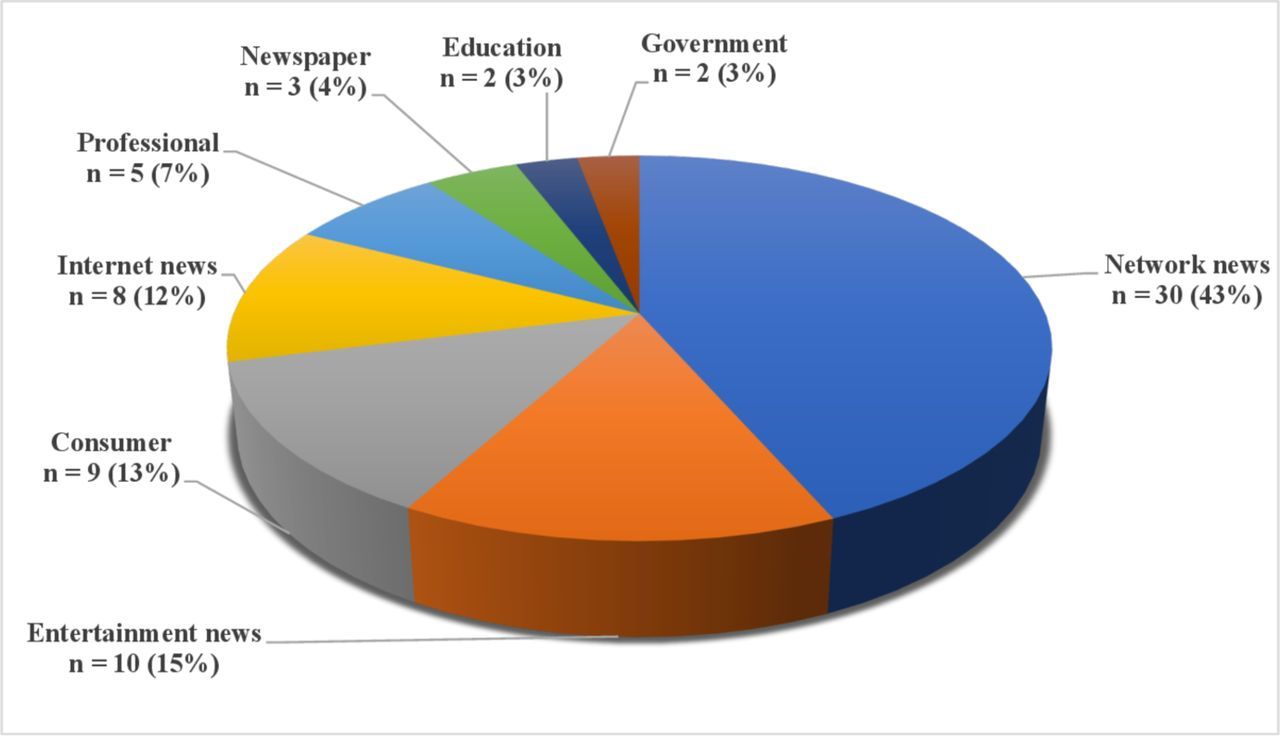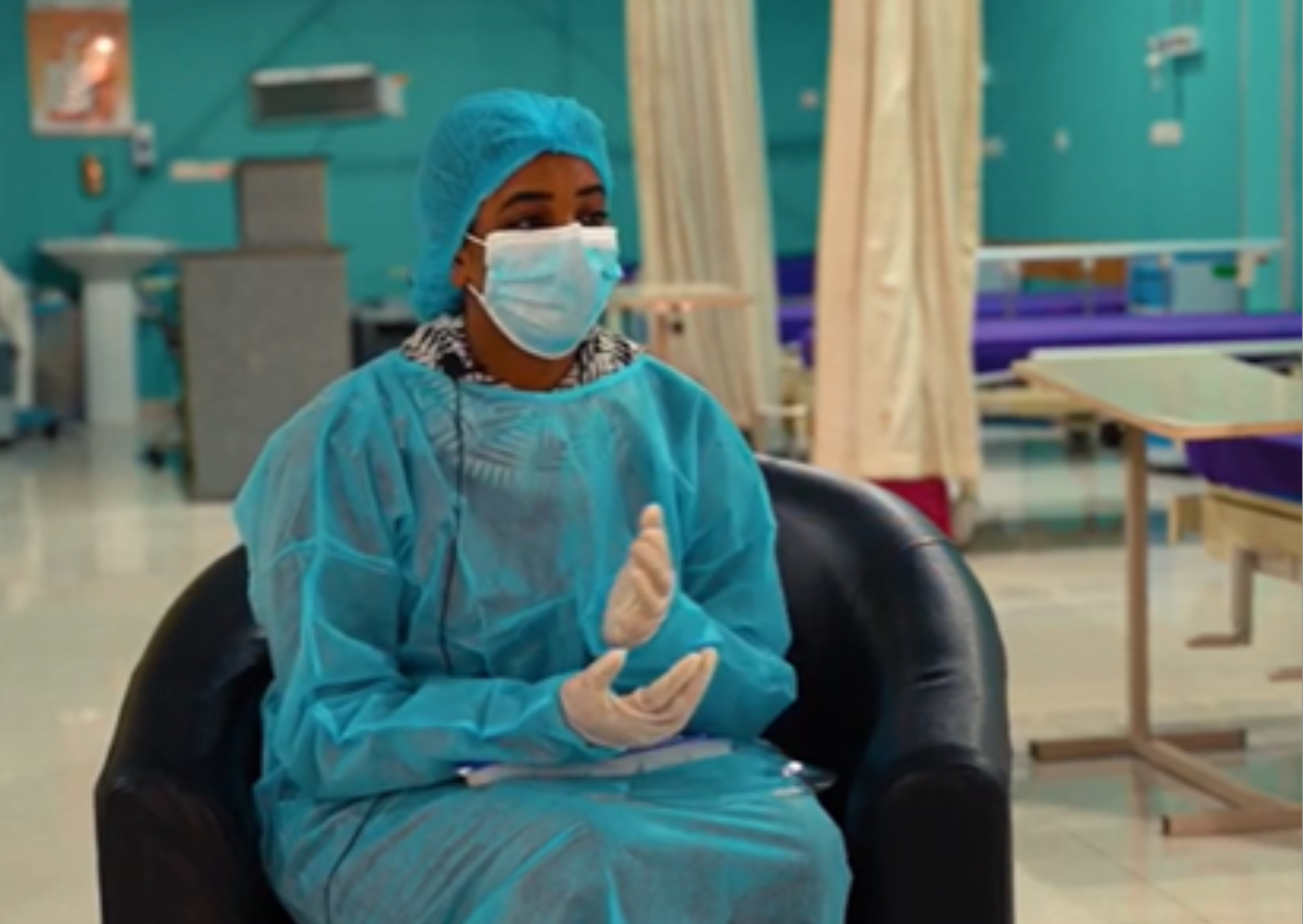When the going gets tough, many of us resort to escapism. Being transported across time and space to a place where you don't have to worry about your current situation sounds heavenly. So when the COVID-19 pandemic hit, we collectively decided to hit ALT + Shift. Maybe we thought we could force the situation to reboot. Nonetheless, restrictions on movement and travel, a financial crisis leaving thousands jobless, and skyrocketing inflation, the year 2020 changed our lives forever. But as a species, we are adaptable, and working unanimously to find solutions to the problems 2020 posed was what got us through this new chapter of life on earth.

A lone motorcyclist on an empty street in Khartoum as the Sudanese government ordered a lockdown to prevent the spread of the coronavirus. Source: Associated Press
COVID as a Protagonist: is the Disease a Villain or an Antihero?
Some might argue that Coronavirus is an outright villain with no remorse or even a compassionate backstory to make you understand its motivations. It has killed thousands and mutated every once in a while to make the world fear that it might be invincible or likened to a Greek curse. Not to mention that if it didn't kill you, it left you with an economic crisis that reeks of a future recession; all of this makes COVID-19 the biggest villain of recent times.
Yet as time progressed, COVID-19 showed signs of a morally grey character, as it left us all feeling disheveled in its wake but taught us important lessons on infection control, mental health, and how escapism is never the solution. There was a slow realization the media reached when it comes to its portrayal of COVID-19.
COVID-19 in the Media: What is the Narrative Surrounding it?

A graph showing the sources of COVID-19 information that people globally resorted to. Source: BMJ Global Health
There were many memes and creative works regarding COVID-19 as an apocalyptic event, maybe even one that marks the end of the world. As we collectively focused on the negative aspects of the virus, the world slowly adapted to spreading awareness and preaching protective measures. The lens of focus shifted towards COVID-19 as something we need to deal with on a daily basis, and how as a society we will heal from its aftermath.
Besides its impact on the respiratory system, the virus proved to be very heavy on mental health and it was a war for survival and rebirth. This definitely became a big burden to carry and some people resorted to escapism and maladaptive daydreaming- which is a technique used to counter reality by imagining you are somewhere else with different circumstances, away from what you deem as hell. What do people do when confronted with the idea of hell incarnate? They flee! which led to a rise in what is now known as cottagecore.

Cottagecore. Source: https://www.gulleygreenhouse.com/
Cottagecore is a countryside aesthetic that became popular on social media platforms such as Tumblr and TikTok and soon took over the internet. Cottagecore is an aesthetic movement that draws together all of the best parts of going off and living in a cabin in the woods. It's a glimpse into a simple existence where the fruit is always fresh, the air is always clean, and the technology is always out of sight. No one can ping you in woodland paradise.
With the theme of self-imposed exile becoming universal, people coveted being able to escape but according to mental health experts, escaping is actually detrimental to mental health. For as much as it might pain oneself, it is to delay gratification, suffer momentarily face reality and be in tune with the moment in time, then deal with it later on as it gets worse with time.
The methods of escaping vary, as they progress from plausible deniability where you convince yourself using some sort of warped logic that this is in fact not happening but some sort of a dream. Unlike lucid dreams, you cannot control their outcomes. Some people resorted to substance abuse or a fixation on a topic. Some individuals embraced being workaholics assuming that burying themselves in work is better than facing the fact that the world is changing and we can't predict how and to what it's evolving.
For many families, being stuck together in one place showed them aspects of their dynamics that they did not see coming. Some relished in knowing this and working to solve underlying issues while some fixated on the suffering broadcasted on every TV screen to escape the distress in their homes. Ironically the time that should have brought people together tore them apart, as divorce rates skyrocketed proving to many that they were in fact escaping their problems and distracted with the daily humdrum rather than facing the music. For some, this was the moment of realization, but others decided to continue the façade of "everything is all right" and binged on shows and movies, continuing the cycle of escapism.

Jabra isolation center. Source: https://ultrasudan.ultrasawt.com/
During a visit to Jabra isolation center, Andariya spoke to the doctors there about their work treating COVID-19 patients. They revealed that after patients were cured of Coronavirus, the mental after-effects seemed to be the elusive symptoms. One of the doctors noted that some patients made attempts to escape from the facility due to fear of the inevitable. This prompted the medical personnel to conduct more one-on-one sessions with patients to help them get the mental health support they need as it's vital for their recovery.
One psychologist in particular explained her counseling session to us. She mentioned that she talks to the patients about their symptoms, how do they feel about them, what would they do differently after recovery, what they look forward to after being discharged, the feeling of being separated from their families and how do they envision their reunion.

A medical professional during an interview with Andariya. Source: Andariya
She professionally engages them and tries to make sure that they understand that the more faith they have in their recovery the more the odds are in their favor. The psychologist also emphasized how each and every medical professional in the establishment is working tirelessly to help their patients recover.
The Earth 2.0: How can Isolation Promote More Unity
I think we all learned to be less petty and focus on the big picture after being struck by the meteor that was the pandemic. Trivial fights over nationalism and xenophobia should seem irrelevant when we are all going through it together.
In the past, we were able to easily reach our colleagues, but when access became a privilege, it taught us that we should never take our collectiveness for granted. It is the one thing that saved us, as well as a new profound realization that being courageous and not fleeing is the admirable trait that kept our species going.
Yet the height of courage is admitting that it is costly on a mental level, and takes time before you learn to hold your ground and not look for an easy way out. The pandemic also taught us that escaping might give a momentary reprieve but in the long run, will delay the process of healing from the psychological impact that such an event might have on one's mental health.
